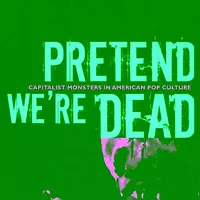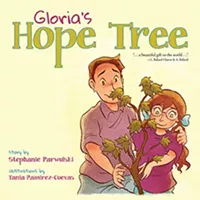It was a bad thing we did, though I can't bring myself to regret it. I was teaching in a college summer writing program back in the early '90s. Two of the other instructors found an old box in the attic of the dorm building we all shared. In it were the artifacts left behind by a student from the late '70s: letters, essays, report cards, journal entries, sports awards, poems.
A lesbian woman, she had written an adoring ode to her lover's clit. Our amateur archaeologists worked for days researching her life then spent an evening giving the rest of us a dramatic presentation of their voyeuristic finds. We laughed nervously: Guilty pleasure as we lived vicariously through this wild woman's college days, presented to us incomplete but also unedited. And also, perhaps, some concern for what artifacts we ourselves had already left behind along the way. What traces had we dropped of our secret selves?
There's a similar feel to reading Hillsborough author Lee Smith's On Agate Hill, the story of Molly Petree, a spirited North Carolina girl orphaned by the Civil War. We learn about Molly's life through the finds of Tuscany Miller, a young Atlanta woman who had been AWOL from her Documentary Studies Program at Carolina State University until she came across Molly's box of "phenomena" (a diary, some bones, marbles and other objects), hidden in an old plantation house that Tuscany's sex-changed father and her father's husband were converting into a bed and breakfast.
Molly's life follows a Dickensian arc for a long while. She's a once well-off child now fallen on very hard times in the aftermath of the war. She is raised by her noble but long suffering Uncle Junius, who voted against Secession and wants everyone on his Agate Hill plantation, regardless of race, to learn how to read. But Junius' poor health and ruined finances send the plantation and its dwindling population ever deeper into decay. Strong-willed Molly keeps dreaming of a better life. Then a mysterious, wealthy man of the world (accompanied, of course, by an exotic, dark-skinned foreign servant) rescues Molly from her fate, sending her off to a fancy boarding school through which she meets wealthy young men who want to marry her. Surely some message of faith and good behavior is ahead.
But Molly won't see the story through to its edifying ending. Her expectations are great but they are not of a quality of which those around her approve. On playing dolls with her sickly best friend Mary White, she writes in her diary, "For I do not want a husband myself nor a big clawfoot chest full of silver, I want a demon lover and so does [her doll] Margaret, this is her secret desire." Then later, "Do I want to be taken off by a demon lover ... Or do I want to BE one ... ?"
She has been what she calls a "ghost girl," barely there in a house where too many have died. She is exhorted to be an angel, a pure, long suffering orphan awaiting her reward in Heaven. She rejects them both. "I don't want to be an angel any more than I want to be a ghost girl. I want to be a real girl and live as hard as I can in this world ... I want to live so hard and love so much I will use myself all the way up like a candle, it seems to me this is the point of it all, not Heaven."
And so she does. Molly's life is not an easy one. She insists on a hard-lived life and she gets it, with more than her measure of suffering and loss. She finds her demon lover, but they don't live happily ever after. Demons aren't the stuff of settling down and making babies. Neither is Molly.
Molly lives her life unedited, fully expressed, whole and flaming and electric. In the end, she returns to Agate Hill, where she cares for her benefactor in his final days, both of them battered but not broken, grieving but with no regrets. "I am glad I gave all my heart," she writes. "I would do it again."
The layers of remove through which we know Molly prevent us from knowing her fully. Even a wild girl keeps some secrets. But Smith's presentation of the pieces offers a wicked thrill and inspiration to any wild child ready to give up on happy endings in exchange for a life fully lived.
On Agate Hill
Lee Smith. (Algonquin Books of Chapel Hill, 365 pages, $24.95)
Speaking of 3.50000
-
Thanksgiving?
Nov 21, 2007 -
CMPD Officers Shoot Again
Nov 14, 2007 -

Tea Ceremony
Nov 14, 2007 - More »
Latest in Books
More by Thomas Bell
-

My Antihero, Zero
Sep 20, 2006 -

Marx as a Mummy
Sep 6, 2006 -

The Neighborhood Of God and The Devil
Aug 23, 2006 - More »
Calendar
-
 RuPaul's Drag Race Werq The World Tour 2025 @ Ovens Auditorium
RuPaul's Drag Race Werq The World Tour 2025 @ Ovens Auditorium -
 Boulet Brothers Dragula: Season 666 Tour @ N.C. Music Factory
Boulet Brothers Dragula: Season 666 Tour @ N.C. Music Factory -
 Jim Norton @ The Underground
Jim Norton @ The Underground -

Trap & Paint + Music Bingo @ Blush CLT
-

Trap & Paint (Hookah Edition) @ Blush CLT










